Microsoft Word has been one of the most popular word processing programs for over 30 years, and is used by millions of people around the world. It is used in almost every industry and is the most common program used to create documents.
It has a wide range of features and capabilities that make it a versatile tool for many different users. Microsoft Word is also the most popular word processor for students, making it a great choice for school projects and reports.
Today, we are exploring the Top 10 hacks to improve your productivity with Microsoft Word.
1. Use keyboard shortcuts.
Keyboard shortcuts are one of the most effective ways to quickly carry out a task in Microsoft Word. They allow you to quickly move around your document, cut and paste text and format text. For instance :
- Ctrl + C: Copy.
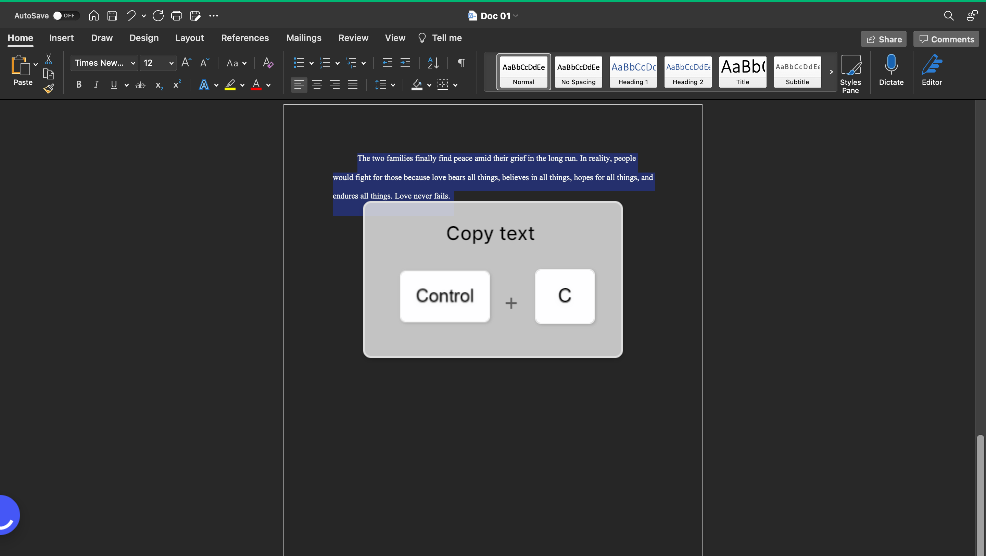
- Ctrl + X: Cut.
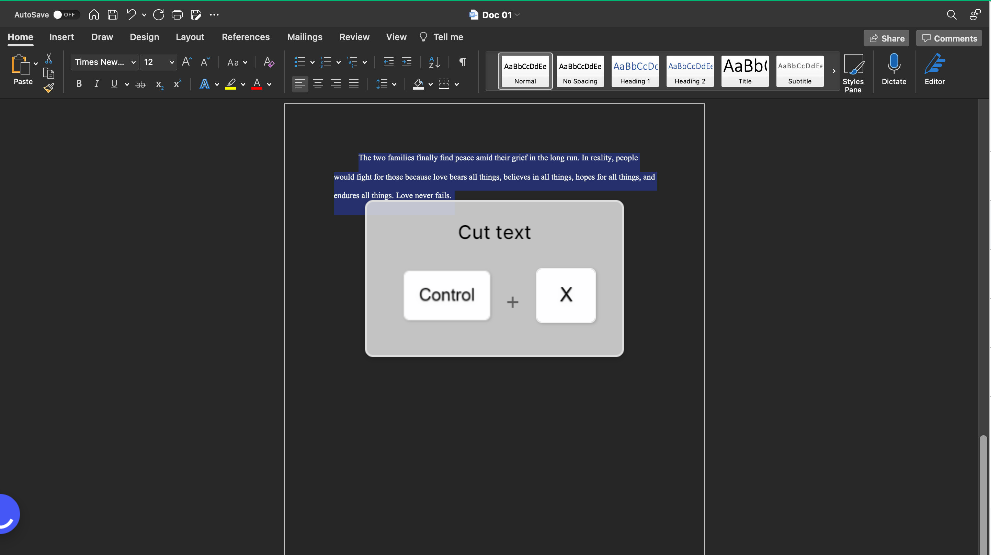
- Ctrl + V: Paste
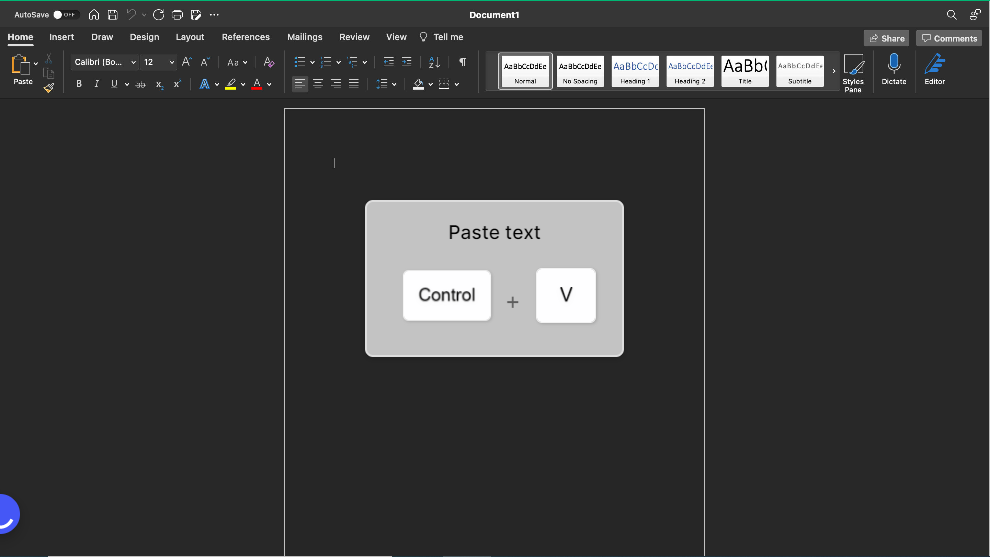
You can learn more about Keyboard shortcuts used in Microsoft Word here (insert link to the word keyboard shortcuts here)
2. Use the spell checker.
Microsoft Word includes a built-in spell checker that can help you quickly identify and correct any spelling errors in your document. To use the spell checker, click on the Review tab at the top of the Word window, then click on the Spelling & Grammar button or use Keyboard Shortcuts as shown below :
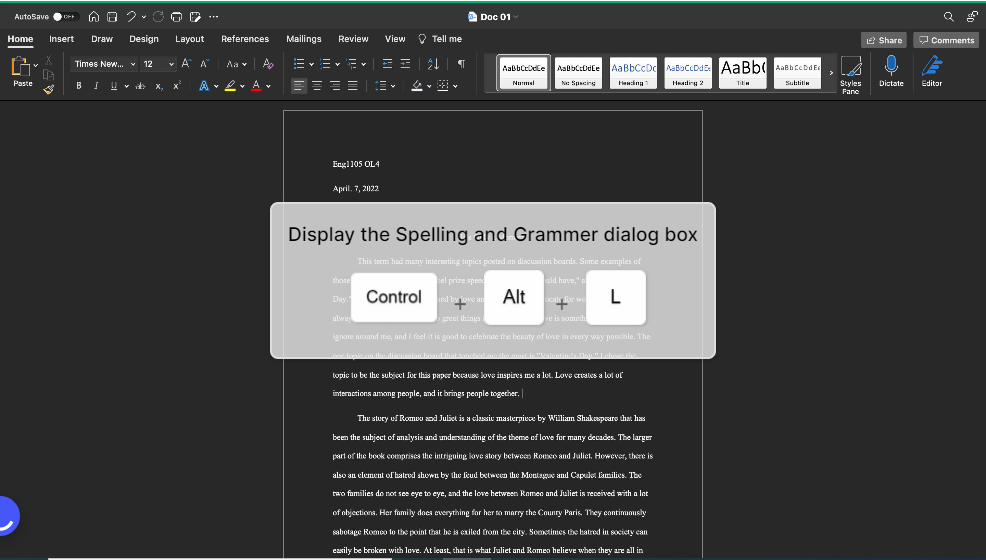
The spell checker will scan your document for spelling and grammar errors, and it will provide you with suggested corrections for any errors it finds.
3. Utilize the Styles feature.
This Microsoft Word feature allows you to quickly format your document with pre-defined styles to make their documents look more professional.
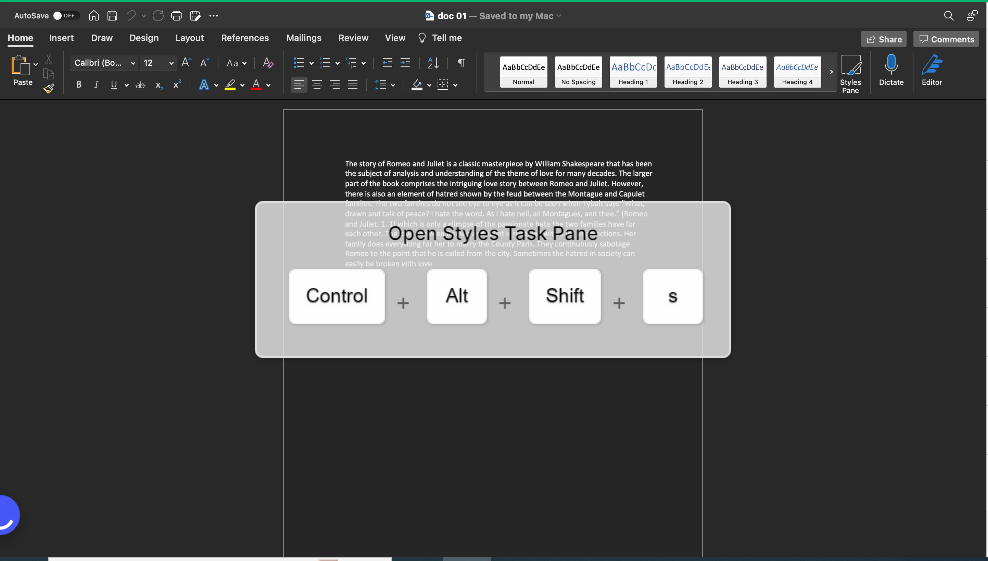


4. Use the “Find and Replace” feature.
Microsoft Word's Find and Replace feature allows you to quickly locate and replace words, phrases, and even images in your document. To access this feature, open your document and press Ctrl + H or go to the home tab and select Replace.
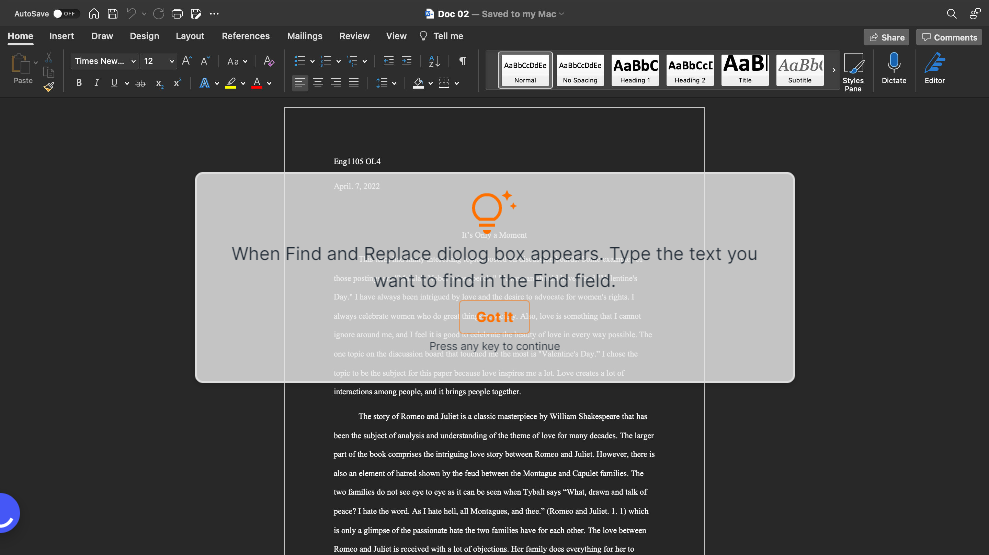
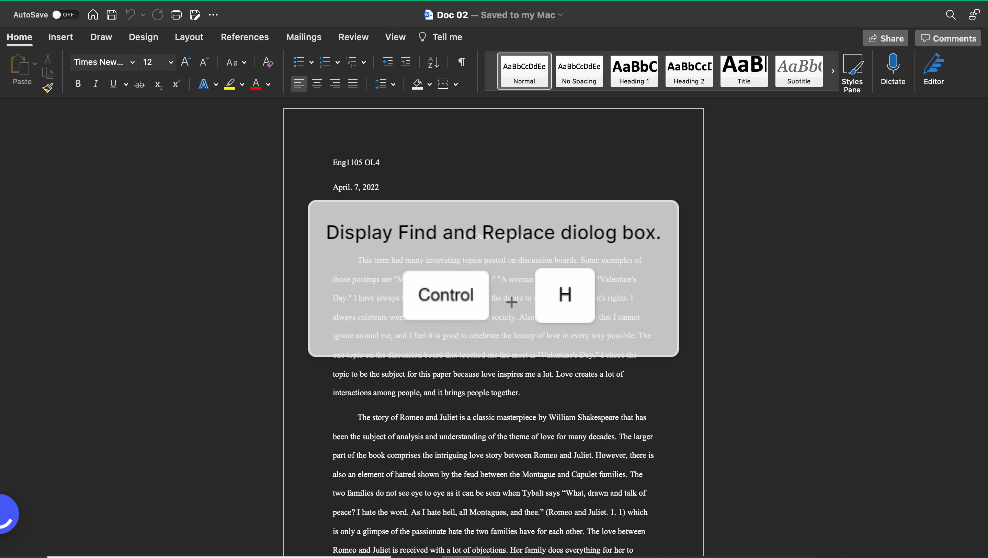
Once you've accessed the Replace feature, you'll be able to type in the word or phrase you want to find and the replacement word or phrase you want to use.
5. Learn to use the Table of Contents feature.
This feature allows you to quickly organize and navigate your document. Microsoft Word has the ability to automatically generate a table of contents (TOC) for documents.
To do this, follow the steps below:
- Place the cursor at the beginning of the document where you would like the TOC to be generated.
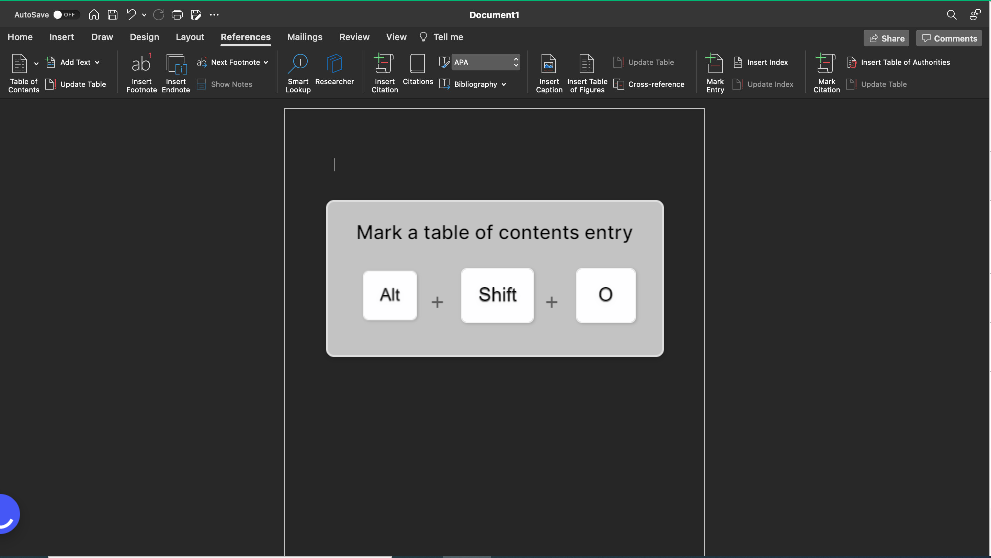
- Go to the “References” tab on the ribbon.
- Click on “Table of Contents”.
- A list of options will appear. Select the style of TOC you would like to generate.
- Word will then generate the TOC for you. You can customize it by adding, removing, or editing the contents.
- When you are finished, click “OK”. The TOC will be inserted into your document.
6. Utilize the AutoCorrect feature.
Microsoft Word has an AutoCorrect feature that allows you to automatically correct words that you have misspelled. It also can automatically replace words with phrases, symbols, and even graphics.
To access this feature, open the “File” menu and select “Options.” Select “Proofing” from the left menu and then click on the “AutoCorrect Options” button. You can then specify the words and phrases that you want to be automatically corrected.
7. Use the Template feature.
This feature allows you to quickly create documents with predefined layouts and formatting. Microsoft Word has a number of features related to templates. These include:
- The ability to create your own custom templates from existing documents.
- A range of built-in templates for specific types of documents, such as letters, resumes, and brochures.
- A Template Gallery where you can browse for templates created by other users.
- . Template language support, which allows you to create and use templates in different languages.
- The ability to save a document as a template, which can then be used to quickly create new documents with the same formatting.
8. Use the macro feature.
This feature allows you to quickly automate common tasks in your document. Macro is a feature of Microsoft Word that allows users to record a series of actions and then play them back with a single command.
A macro can be used to automate a task that would otherwise require multiple steps. This can save a lot of time and effort by eliminating the need to manually perform the same task repeatedly. Macros can also be used to create complex documents with many different elements.
9. Utilize the Track Changes feature.
The Track Changes feature in Microsoft Word allows you to view and manage changes made to a document. When enabled, any changes made to the document are marked in a different color and display who made the change. This feature also allows you to accept or reject changes made to the document.
10. Use the Navigation Pane to quickly navigate to headings.
The Navigation Pane allows you to quickly navigate through your document by displaying a list of all the headings. The Navigation pane is a feature in Microsoft Word that contains a list of headings and page numbers that you can use to quickly move within a document. It is accessible from the View tab in the ribbon. The Navigation pane can be used to quickly jump to different sections of a document, such as headings, footnotes, and images. It can also be used to quickly search for specific text within a document.
In short, Microsoft Word is a powerful productivity tool that can help you create professional-looking documents quickly and easily. It allows you to create and organize documents efficiently, and it can also help you to collaborate with others on documents. With features such as AutoSave, It helps you to save time and energy when working on documents.
Here at KeySkillset, we are all about Productivity and Efficiency. Make sure to check out our Ms Word course for more Productivity tips (Insert Course link).



.jpg)
.jpg)


.jpg)
.jpg)






.png)

